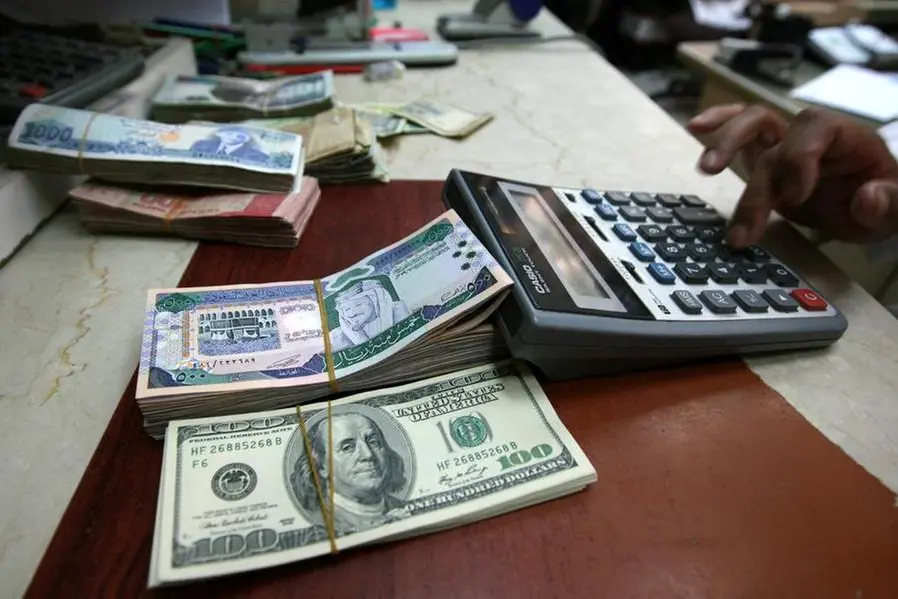PHOTO
Saudi Arabia’s economy showed signs of improving in November, with several economic indicators showing improvement, while remittances continue to fall for the second straight month, according to a report released by Al Rajhi Capital this week.
The amount of foreign reserves held by the Saudi Arabia Monetary Agency (SAMA) increased by 2 percent in November on a year-on-year basis - the eighth consecutive monthly increase recorded in 2018.
Credit to the public sector in November also increased by 17.5 percent from last year, while credit to the private sector grew by 2.3 percent year-on-year, recording its fastest growth rate in two years.
Activity in Saudi Arabia’s private sector started to show signs of bottoming out in May last year, after Emirates NBD’s seasonally-adjusted Purchasing Mangers’ Index (PMI) showed that private sector activity had hit its lowest level in recent years in April.
The private sector growth started to rebound again in June from a slump that was triggered by the government’s austerity policies, according to Reuters. (Read more here).
Despite the improvement, remittances from the kingdom continued to decline in November as the number of expats living in the kingdom has continued to fall. Remittances in November dropped by 17.6 percent to 9.9 billion Saudi riyals, from 12.02 billion riyals in the same month in 2017, local media reported. Remittances from expatriates dropped by 17.6 percent in November on an annual basis, while remittances from Saudi nationals decreased by 39.5 percent. (Read more here).
The introduction of dependents’ fees for expatriates, new taxes and a general rise in cost of living has led to thousands of foreigners leaving the kingdom, or sending their families home. (Read more here).
A Saudi Gazette report on Tuesday citing figures from the General Organization for Social Insurance (GOSI) indicated that the total number of people in the workforce in Saudi Arabia declined by 554,357 in the final quarter of 2018. These figures include both Saudi and expatriate workers. (Read more here).
Saudi Arabia’s finance minister announced last month that the government has no intention of changing its policy on fees for expatriates and their dependents despite lobbying from the private sector to delay further increases, according to Reuters. (Read more here).
Expat fees are set to rise even further this year in an effort by the government to encourage the employment of Saudi nationals and stem rising unemployment levels as private businesses have been hit by the expat exodus that followed the introduction of the levy. (Read more here).
Al Rajhi’s report also noted that a cost of living index in November increased at the fastest pace in eight months, up 2.8 percent on an annual basis and 0.3 percent on a month-on-month basis, driven by a rise in transport and food costs. (Read more here).
Saudi Arabia’s finance minister announced in December that while fuel prices are reviewed on a regular basis, the government does not plan to raise any other energy prices in 2019.
And with announcing the kingdom’s biggest budget in its history for the year 2019, Al Rajhi expects that cost of living allowances will continue to form part of government expenditure, which is set to increase by 22 billion riyals this year. (Read more here).
Further reading:
- Saudi GDP growth speeds up in Q3, non-oil sector still slow
- Saudi banks continue to build buffers and wait for growth: Fitch Ratings
- Saudi foreign reserves grow 4.5% in Q3 – SAMA
- Revisiting the expat dependent tax in Saudi
- Saudi construction sector worst hit as expats leave for home
- 71% expats employed in Saudi public sector lose jobs
(Reporting by Nada Al Rifai; Editing by Michael Fahy)
(nada.rifai@refinitiv.com)
Our Standards: The Thomson Reuters Trust Principles
Disclaimer: This article is provided for informational purposes only. The content does not provide tax, legal or investment advice or opinion regarding the suitability, value or profitability of any particular security, portfolio or investment strategy. Read our full disclaimer policy here.
© ZAWYA 2019





















